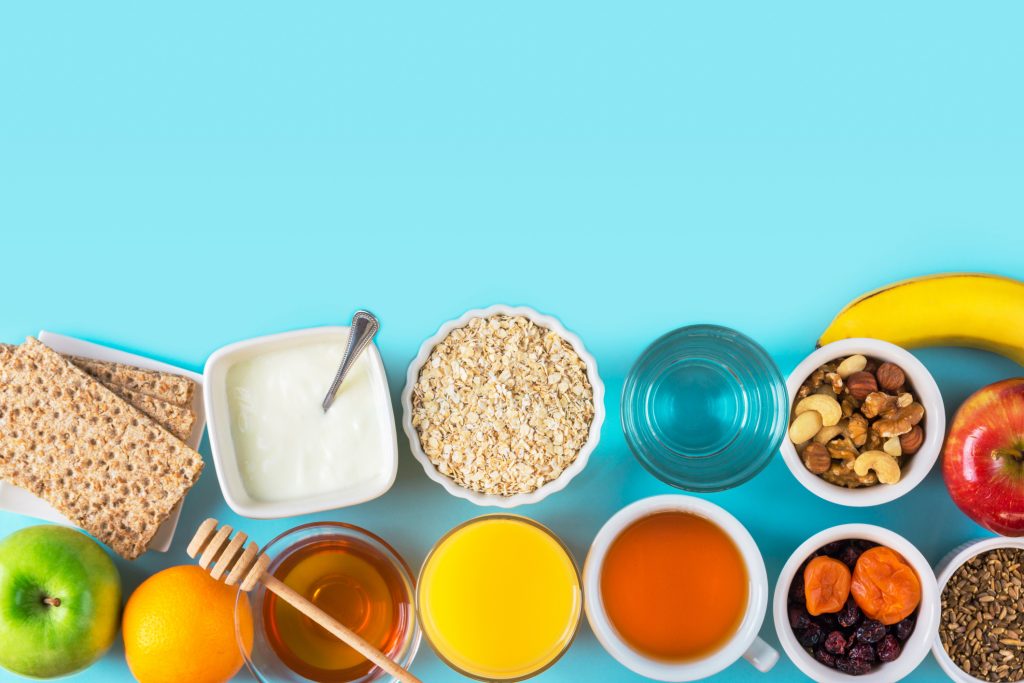Business Day Prime
Boost Your Immunity
By Lynne Gidish.
In the midst of so many uncertainties as the COVID-19 pandemic gains momentum in South Africa, staying fit and healthy has become a priority for us all. With immune systems – our bodies’ natural defences against disease – having taken centre stage around the globe, here’s some expert advice on how to optimise yours.
Look after your gut
Between 70 and 80 per cent of your immune cells are located in your gastrointestinal tract, says registered dietitian Claire Julsing-Strydom. “The term ‘microbiota’ refers to the bacteria that live in your gut, playing a crucial role in digestion and the fermentation of food. Fibre, found in fresh fruits, vegetables and wholegrain carbohydrates (bulgur wheat, barley, spelt, millet and high-fibre cereals), feeds the bacteria, which in turn produce important substances such as the short-chain fatty acids that are vital for maintaining a robust immune system. Lack of dietary fibre can result in a compromised gut, which can negatively affect your immune function.”
Get your vitamin D
New research published earlier this year in Nutrients, a peer-reviewed open-access journal
of human nutrition, highlights the importance of vitamin D in helping to support immune function, says Julsing-Strydom. “Studies have shown that higher concentrations of vitamin D help to lower viral replication, and reduce concentrations of pro-inflammatory cytokines, which produce inflammation that damages the lining of your lungs. Vitamin D also increases concentrations of anti-inflammatory cytokines, the good guys that help to reduce inflammation. Current thinking is that you should be aiming for higher vitamin D levels of between 40-60ng/ mL, so try to include more fatty fish such as sardines, salmon, pilchards, mackerel and trout in your diet.”
Watch your weight
Obesity puts you at risk for a compromised immune system because it causes a state of low-grade inflammation. “Your diet can either reduce inflammation or increase it depending on the choices you make,” explains Julsing-Strydom. “If overweight, try losing weight by eating a healthy diet that contains lots of vegetables and high-fibre whole-grain carbohydrates, lean proteins, fresh fruit and good-quality fats such as nuts, avocado, olives and olive oil. Avoid saturated and trans fats, refined carbohydrates and excess sugar. As little as 5 -10 per cent weight loss will improve your health.”
Tips to boost your immune system

Stress plays a vital role in compromising immunity, and we’re living in increasingly stressful times, explains Dr Jonathan Klotnick, a GP with an interest in travel medicine and telemedicine. “Reducing stress with all the uncertainty around us is not easy, which is why staying active is so important right now. Any form of exercise and meditation will do good things for your immune system – a 30-minute walk in our winter sunshine will not only reduce those stress levels but will help to improve your vitamin D levels too.” He offers the following additional tips to boost your immunity during the COVID-19 pandemic:
Supplement with zinc: It helps to protect your mucous membranes – the places where bacteria and viruses enter your body.
Check your iron: Low levels predispose you to infections. Take an iron supplement if you are anaemic and especially if you are still menstruating.
Up your vitamin C: Some studies have shown it to be of benefit for immunity.
Protect your gut: Reduce your sugars and consider taking a probiotic.
Maintain adequate vitamin B12 and folic acid levels.
Dr Klotnick recommends that you always discuss any form of supplement with your medical practitioner or pharmacist. He also suggests that immune-suppressed patients should continue with outdoor exercise, but once they’ve finished exercising, they should try to avoid congested areas over the next 3-4 months.






 Sign-up and receive the Business Media MAGS newsletter OR SA Mining newsletter straight to your inbox.
Sign-up and receive the Business Media MAGS newsletter OR SA Mining newsletter straight to your inbox.